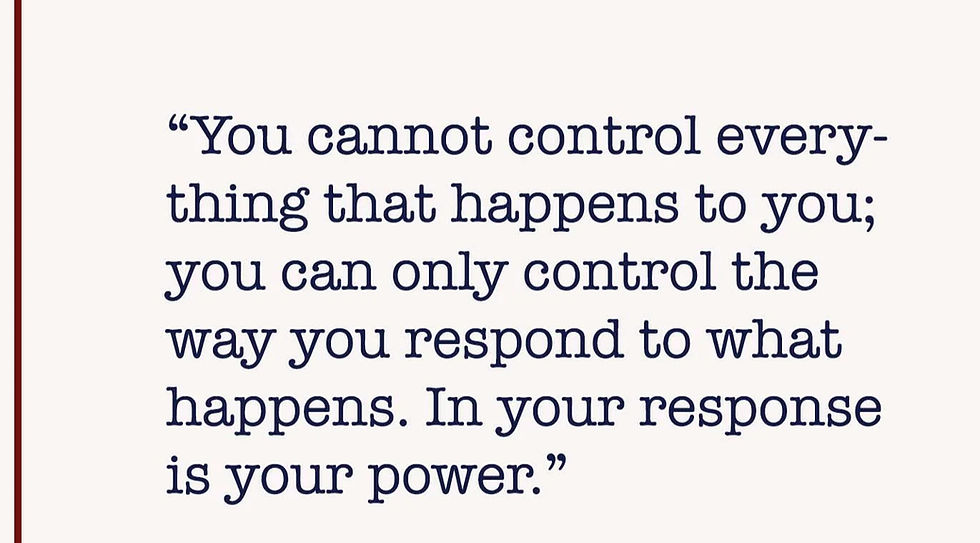How to be assertive in your personal and professional life and stop people pleasing?
- Kirandeep Kaur

- Sep 6, 2023
- 4 min read
Updated: Sep 27, 2023
People-pleasing behavior can indeed have serious detrimental effects on various aspects of our lives. When we constantly strive to make others happy, at the expense of our own well-being, it can impact our relationships, careers, and even our health.
One consequence of people-pleasing is the tendency to go out of our way to please others, even if it means sacrificing our valuable time and resources. This can lead to feeling overwhelmed and overloaded with tasks, as we say yes to requests without considering our own capacity. It often stems from the fear of conflict and a strong desire to avoid upsetting people.
However, constantly putting others' happiness before our own can result in feeling like we're slaves to other people's expectations. This behavior can lower our self-worth, making it easier for others to manipulate us. It can even lead to being overlooked for promotions or being assigned undesirable tasks at work.
In terms of health, people-pleasing behavior has been linked to increased stress, exhaustion, and other health problems. Research has shown that people-pleasing behavior is more common in women and can negatively affect their health. For example, studies have found that individuals may eat more in an attempt to please others, even when they don't necessarily want to. Additionally, people-pleasing coping mechanisms have been associated with being overweight, particularly among women.
It is important to recognize the negative impact of people-pleasing and take steps to address it. Learning to set boundaries, saying no when necessary, and prioritizing self-care are important strategies to break free from the cycle of people-pleasing. By valuing our own needs and desires, we can nurture healthier relationships, enhance our well-being, and establish a stronger sense of self-worth.

That where the importance of setting boundaries and prioritizing self-care comes in. It is indeed crucial for individuals, especially women, to recognize the negative impact that constantly people-pleasing can have on their
well-being. By consistently putting others' needs before their own, individuals may neglect important aspects of their own lives, leading to emotional and physical exhaustion.
Saying "no" is an essential part of establishing healthy boundaries and taking care of oneself. It can be challenging to prioritize personal needs over others' expectations, but it is necessary for overall mental and emotional well-being. Remember, your needs are just as important as anyone else's, and prioritizing self-care is not selfish—it is an act of self-preservation. By saying "no" when appropriate and focusing on personal growth and self-improvement, you have already taken steps in the right direction. Taking time for yourself, engaging in activities that bring you joy and fulfillment, and connecting with like-minded individuals can contribute to increase
d confidence, happiness, and a reduction in negative thoughts.
It is important to emphasize that you don't need to provide excuses or become someone else in order to say "no" to something. Your boundaries and decisions are valid as they are. By putting yourself first and prioritizing self-care, you are better equipped to support and care for others effectively. Remember, taking care of yourself is not a luxury, but a necessity.
In summary, setting healthy boundaries and saying "no" when necessary are essential for your overall well-being. By prioritizing self-care, you can cultivate a positive mindset, increase self-confidence, and ultimately lead a more fulfilling life. So remember, it's okay to put yourself first and take good care of yourself.
Setting healthy boundaries and understanding what you are and aren't responsible for is not selfish in a negative way. It is actually important for your well-being and the well-being of others in your life. By taking on the burden of other people's expectations and responsibilities, you prevent them from taking accountability for their own actions. It is important to learn to be more assertive and self-protective.
There are several phrases you can use to assert your boundaries and buy yourself time before giving an answer. One effective phrase is "Let me get back to you." This allows you to reflect on the request and assess your schedule or
commitments before responding. By defaulting to this response, you create space for yourself to make a thoughtful decision and respond with a polite "no" if necessary. It is often easier to do this through email or text, as it gives you time to consider your response.
Adding a delay before making decisions can also be helpful. According to a study titled "Humans optimize decision-making by delaying decision onset," the human brain needs a short pause of 50 to 100 milliseconds to focus attention on relevant information and block out distractions. Taking a slightly longer pause before committing to obligations allows you to gather your thoughts and make a more deliberate choice.
Starting with small "noes" is another effective way to assert boundaries. You can practice saying no in situations such as declining a drink with a
meal or politely declining a lengthy video call. Using alternatives can also be helpful, such as offering to try your best or suggesting an alternative way to communicate.
Knowing your goals makes it easier to say no to requests that do not align with your priorities. Take the time to re-evaluate your long-term and short-term goals on a regular basis. When you have a clear understanding of what you want to achieve in the future, it becomes easier to decline requests that do not contribute to those goals.
Recognize and distance yourself from toxic people who constantly make demands on your time and energy. It's important to be able to
identify toxic individuals and take steps to minimize their impact on your life. Surround yourself with positive influences and consider seeking guidance on dealing with difficult people.
Stop apologizing unnecessarily when asserting your boundaries. It's common for people to apologize excessively, even when they are prioritizing their own needs. Remember that standing up for yourself is not something to feel guilty about. By prioritizing your own well-being, you are taking care of yourself and setting the stage for healthier relationships.
It's time to stop people-pleasing and start prioritizing your own needs. By setting healthy boundaries, being assertive, and knowing your goals, you can create a more balanced and fulfilling life.
Please send your review so I know How I am doing. And if there is anything I can improve.
At your service
With Love and Gratitude
Kiran



Comments